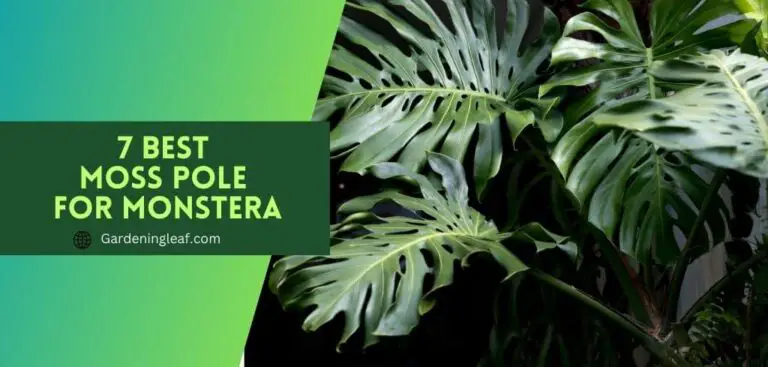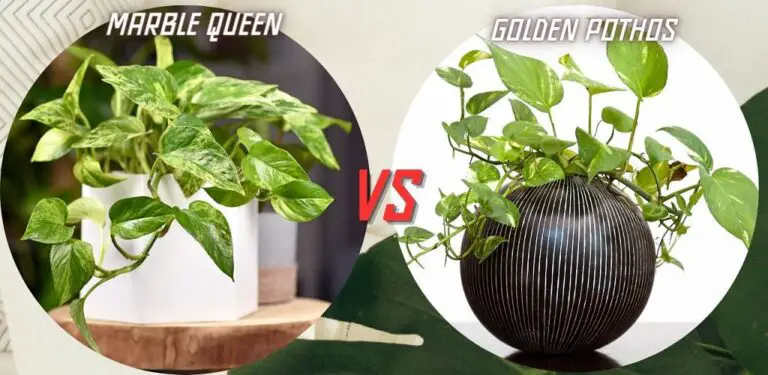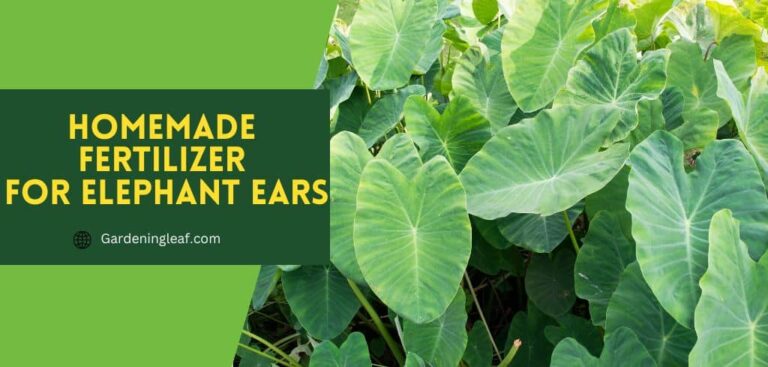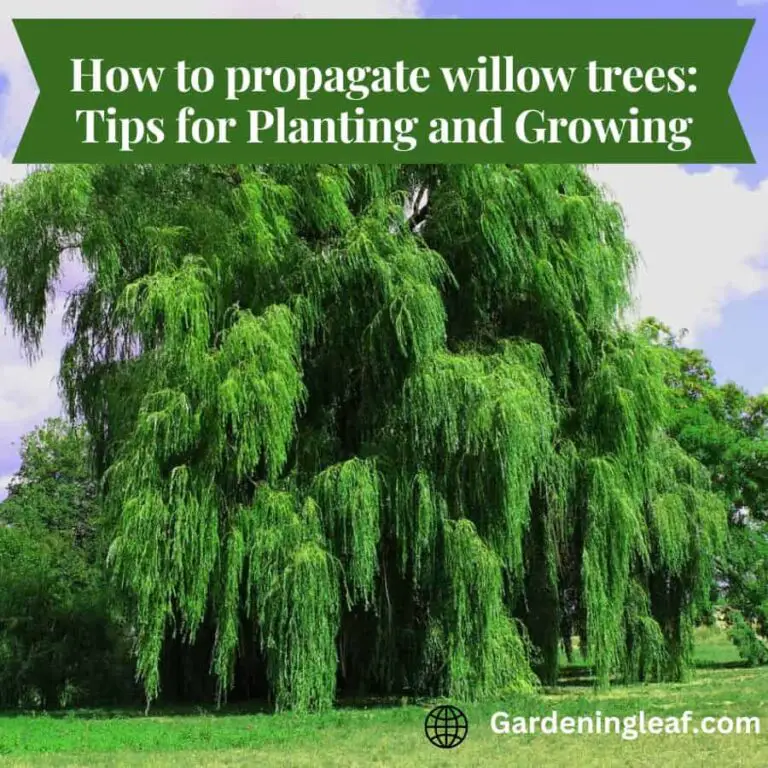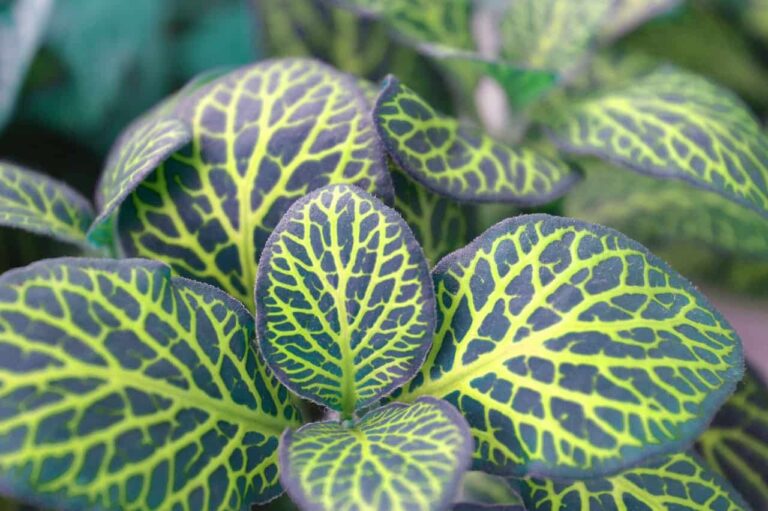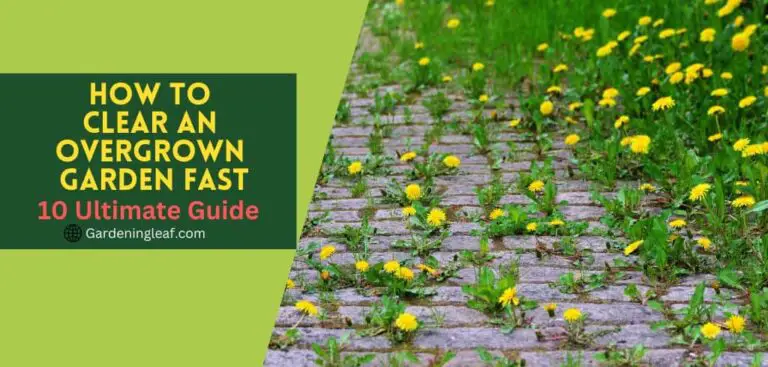Coir Pole Vs Moss Pole: Which one is Better for Gardening?
Gardening can be tricky, and one of the questions that often comes up is, what’s the best way to support your plants? The climbing pole, sometimes called a moss pole, is famous for gardening because it helps your houseplant climb.
Many people might initially think that the coir and moss poles are the same, but this is not the case. The coir pole is often referred to as a ‘dowel cane’ because of its cylindrical shape and coir fibers or twine wrapped around it in a continuous spiral.
Moss pole, on the other hand, is made from long spines of moss that are naturally Tinder-dry and can be easily pulled out of the ground. Moss poles do not need any wrapping as they hold their shape well.
Coir Pole Vs Moss Pole Which one is right for my plant? Let’s delve deeper into the good and bad of each option, so we can decide which is the most suitable for your garden.
Different Types of Plants Climbing Pole
Before comparing, you need to understand what types of Plants Climbing poles are available. The most common type of pole is the traditional moss pole. These are made with natural moss, which has been dried and preserved. They provide a natural look and are a great choice if you want to add a touch of greenery to your living space. The only downside is that they need to be replaced every couple of years as the moss will eventually decompose.
Another option is a Coir pole. These are made from bamboo and are lightweight, making them easy to move around.
Finally, you can find plastic, PVC pipe, or metal poles. These are the most affordable but have a different natural look than the other options. They will also last less, so you’ll need to replace them more frequently.
Why Climbing Poles are Necessary For Your Plants
Epiphytic plants need a helping hand to make their way upward, and the aerial roots of vining species have found just the thing. The fibrous material provides secure anchorage, which aids their climb and growth – a funny way of getting to the top.
Moss poles are a great way to do just that! Moss poles are a type of climbing support for plants, and they can provide your plants with the extra stability they need to thrive. But why are moss poles necessary?
First, most poles can help your plants reach their full height potential. Without the support of a moss pole, plants can only grow so tall before they become top-heavy and begin to droop or even topple over. Using a moss pole, you can provide your plants with the necessary support to help them reach their tallest possible heights.
Secondly, moss poles can help to keep your plants healthier. As plants grow, they often search for something to climb on and attach themselves to. Without the support of a moss pole, they may attach themselves to your furniture and walls, which can cause damage and be difficult to remove. By providing your plants with a moss pole, you can keep them from damaging your home and provide a safe and healthy place to climb.
Finally, moss poles can be the perfect way to add a unique and beautiful touch to any space. With their vibrant colours and natural textures, moss poles can provide an interesting contrast to more traditional decor pieces while still fitting in seamlessly with your existing décor. From various shapes and sizes, you can easily find a moss pole that will add a special touch to your home.
What is a moss pole?
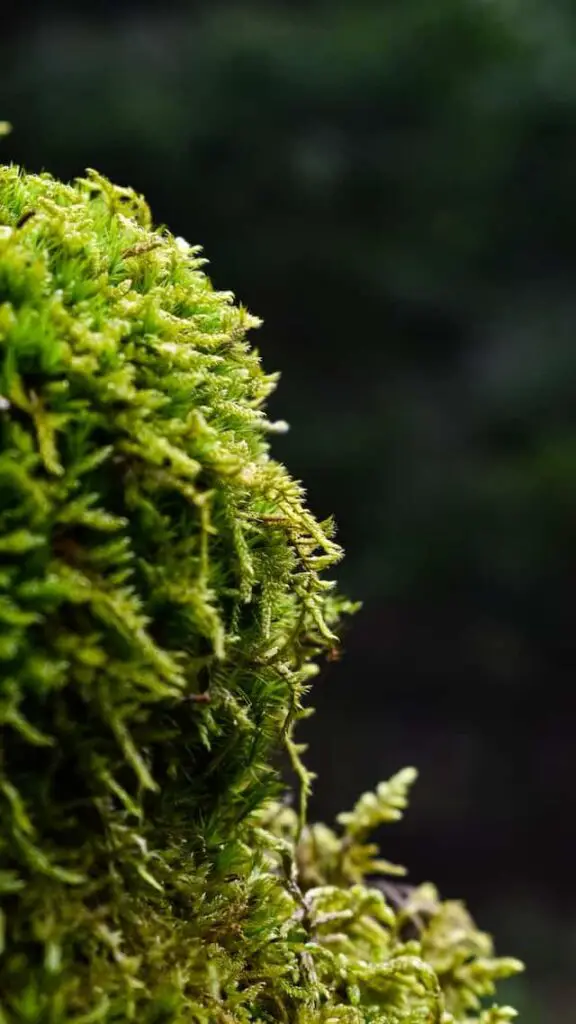
Gardening can be rewarding and frustrating, so it’s essential to understand all the tools to help you. A moss pole is one of the most overlooked yet crucial garden tools.
The moss pole is a clever way to give your climbing vine the nourishment it needs to thrive – like a naturally suitable growth habitat in the sky! This is a fun way to keep your plant healthy with micronutrients and water from the roots.
A moss pole is usually made of sphagnum moss and covered in moss. After that, the stick is put into the ground or pot, allowing the plant to grow.
Moss poles also benefit the climbing plant, such as ivy, pothos, monstera deliciosa and other indoor plants. They can be used as a natural support for the plants, allowing them to climb up the pole and spread out in all directions.
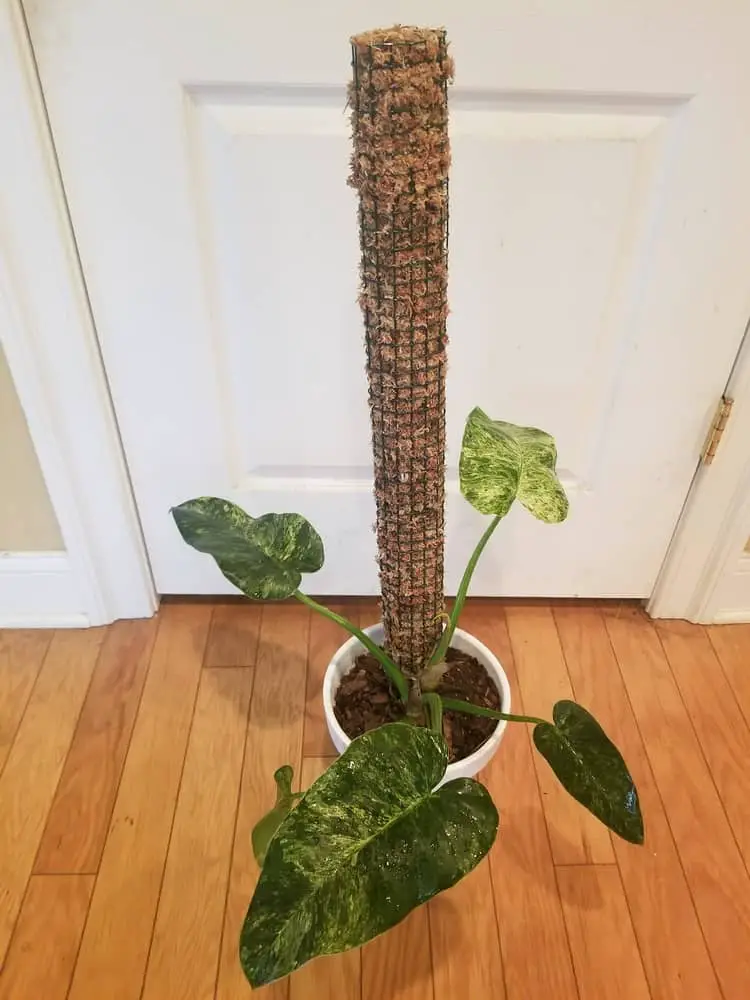
Moss poles, on the other hand, are effective at increasing humidity in the atmosphere. This can be beneficial for certain plants, especially those that need higher moisture levels. Moss may also help keep plant roots hydrated since it retains moisture.
Finally, moss poles can help protect plants from wind and rain damage. When moss is allowed to cover the bar, it acts like a protective blanket and shields the plants from harsh weather conditions.
What is a coir pole?
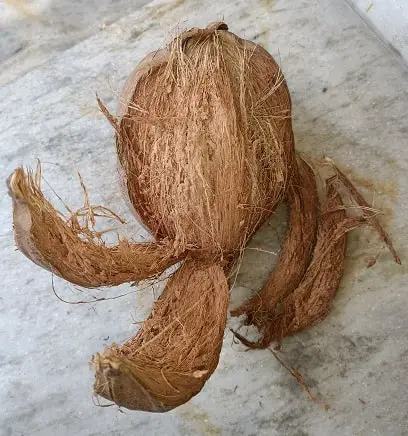
The coir pole is Made from coconut husk. It’s solid and durable and provides a natural barrier to help protect your plants from the elements. Plus, it offers some privacy – perfect for gardens and outdoor spaces. The primary use for coir poles is the same as the moss poles.
Comparison between coir pole vs moss pole
Two popular options for tree poles used for climbing are the coir pole and moss pole. The main difference is that coir poles are made from Coir, while moss poles are made from living moss. Other options may be available, but these two are the most commonly used.
What are the benefits of using a Coir pole?
- Coir pole plants as an alternative to moss or dwarf bamboo.
- They take up less space, are easy to transport and assemble, and support plants well – regardless of their size.
- Coir poles are ideal for climbers as they tend not to break like other plant supports.
- Coir pole is often cheaper than moss pole and can last longer.
- It’s easy to plant coir poles into the ground, making it a good option if you’re new to gardening.
- The durability of coconut coir makes it an ideal choice for use in the garden. Its coir poles, crafted from natural fibres, last longer than those made from synthetic materials such as PVC, plastic, or aluminium, which are prone to cracking.
- The coir pole is easy to plant and take care of.
- Coir poles can withstand high winds better than other vegetative barriers like moss or bamboo poles, as their roots are not buried deep in the soil substrate. Additionally, because coconuts grow in a climbing habit, coconuts are an ideal choice for pole plantings.
What are the Disadvantages of using Coir poles?
- Coirs can slip out of the pole, damaging the Coirs and the pole itself. Furthermore, Coirs may get wedged between the pole slots, making them difficult to extract. Moreover, Coirs can be knocked off the bar if it is knocked over or mishandled.
- Coir poles are not ideal for the long-term storage of Coirs. The slots in the bar can allow Coirs to rub against each other, which can cause discolouration or damage over time.
- Coirs stored in a Coir pole can become tarnished due to exposure to air or humidity.
- Coir’s got quite the salty reputation! Low-grade Coir can be incredibly high in salt content.
What are the benefits of using Moss pole?
- The moss pole is a natural choice for gardeners who want to create an organic and natural look.
- They come in many different shapes and sizes, so you can easily find one that will fit in with your decor.
- This makes them a good option if you have limited space or prefer plants to stay low-maintenance.
- Unlike coir poles, moss doesn’t rot or attract pests. Moss can act as an effective moisture barrier, preventing water from seeping into the Coir bowl and ruining your Coirs over time.
- Finally, the moss pole is a natural material.
What are the Disadvantages of using Moss pole?
- Moss poles are more expensive than coir poles.
- Some people find moss poles aesthetically less pleasing than coir poles.
- A Moss pole is not as moisture resistant as a coir pole, so Coirs stored in a moss pole may become damaged if exposed to water or humidity over time.
- Moss poles may appeal to the eye, but there are more reliable choices for pots.
- In windy situations, they’re less consistent.
- Regular maintenance and frequent replacement are a must for the Moss pole. Get your mossy groove on and keep it fresh!
Which is better for your plant: a coir pole or a moss pole?
When choosing a gardening pole, coir pole or moss pole, which is better for your plant? The answer is both! Coir and moss poles are good alternatives for gardeners who want to avoid using chemical pesticides or fertilizers. They’re also sustainable – you can reuse them multiple times without problems. Both plants stand up well to regular watering and sunlight exposure, so they’re a good choice for anyone with a green thumb. However, if you have a particular plant that needs a specific pole, go for that one.
Is Coco coir pole suitable for Monstera?
Coco coir pole is generally safe and beneficial for monstera plants. Coco coir pole is an excellent choice for plants that are difficult to water because it absorbs moisture well. It also has high absorbency rates, so less frequent watering may be necessary.
Some potential benefits of using a coco coir pole for Monstera include better root growth, improved drought tolerance, higher yields due to increased absorption capabilities, decreased fertilizer needs, and reduced maintenance requirements. While more research is needed in this area, initial findings suggest that it may be an effective tool for growing Monsteras indoors or outdoors.
Do plants grow faster in coco coir?
Some plants may grow faster in coco coir pole than others, but the consensus is that it doesn’t significantly impact plant growth. However, the coco coir pole may help increase water absorption rates, leading to faster plant growth in dry environments where regular watering isn’t possible.
Can bugs live in coco coir?
Generally, no. Coco coir poles don’t help bugs live in. there was no such evidence.
Does coco coir need to be washed?
Coco coir doesn’t need to be washed. However, it may need a wash if it begins to look mossy or is covered in cobwebs.
Conclusion
In comparison between Coir Pole Vs Moss Pole, both have advantages and disadvantages. Moss poles provide a natural look and are easy to install but can become waterlogged and rot quickly. Coir poles are more durable and can provide better support for heavier plants, but they can be challenging to install and require more maintenance. Your gardening needs, budget, and individual taste will ultimately decide your choice. Knowing the advantages and disadvantages of each type of pole can help you make the best decision for your garden.



